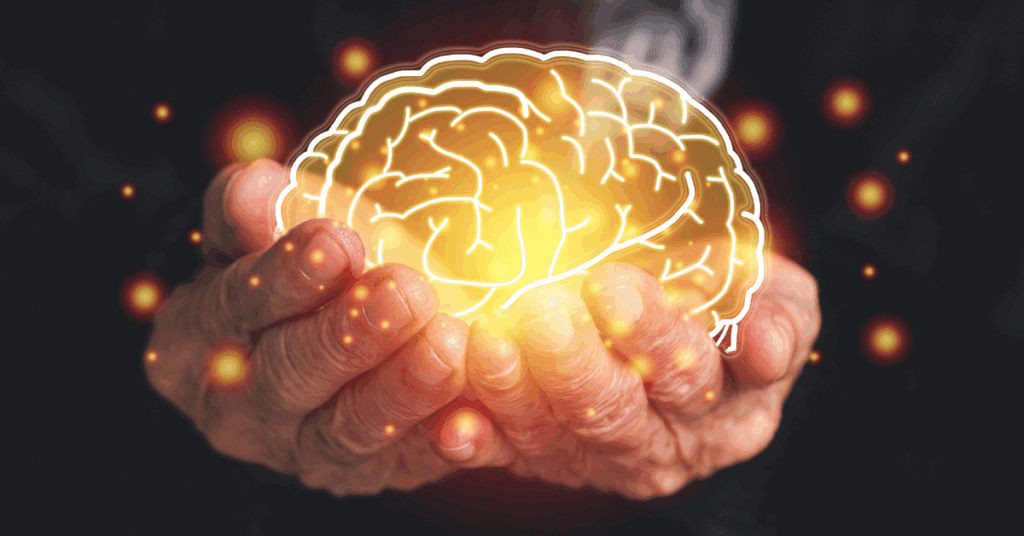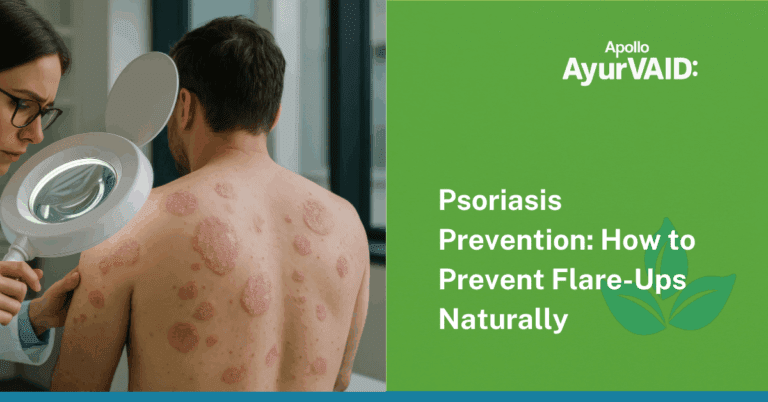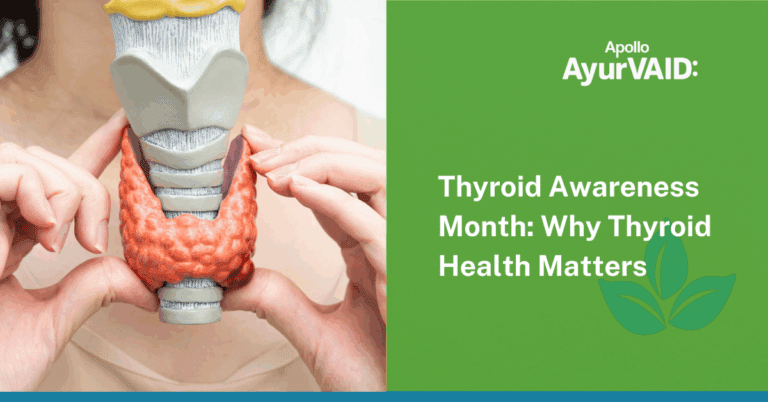Introduction
Having grandmothers who suffered from Alzheimer’s, I have personally seen the silent agony this disease inflicts. There’s the struggle to remember simple tasks, the endless questioning, and the gentle denial of forgetfulness through phrases like, “Don’t teach me these small things; I know them better.” Every phrase is a battle to save pride and identity. The pain of not recalling family, not recognising one’s home or spouse, the loss of social connection, and unknowingly overeating create a reality where the innocence of childhood seems to return.
For caregivers, too, the path is not easy. It is a role reversal—guiding, shielding, and taking charge of everyday routines for those who had taken care of us. Securing them safely at home, stopping them from overeating, reminding them softly not to brush again and again, and soothing their restlessness demand immense patience and compassion.
On World Alzheimer’s Day 2025 on 21st September, Ayurveda offers complementary avenues to address symptoms, calm the mind, nurture the body, and provide comprehensive care to patients, thus assuring their families. If we incorporate Ayurveda treatment principles, we can strive to bring comfort, dignity, and meaning to those suffering from Alzheimer’s.
Understanding Alzheimer's
Alzheimer’s disease is commonly accepted as the most prevalent type of dementia, which is defined by progressive impairment in cognitive function beyond that of normal aging. From a modern medical perspective, it is a neurodegenerative disorder that gradually starts and deteriorates with time, with the most prevalent presenting symptom being loss of short-term memory.
Alzheimer’s Symptoms
- Symptoms usually involve forgetfulness, speech difficulty, and spontaneous or erratic behavior.
- Neuropathological alterations include plaques and tangles in the brain and loss of nerve cell connectivity, which prevents information transfer between the brain and muscles or organs in the body.
- As the condition advances, patients can have more memory loss and confusion, trouble identifying friends or family, trouble learning new information, problems with reasoning, and eventually need full-time care.
- Despite continued research, modern medicine still has no sure cure for dementia, usually presenting symptomatic drug therapy that can have negative side effects.
Ayurveda identifies the defective memory in Alzheimer’s withSmriti Vibhrama and the concomitant behavioral disturbances with characteristics of Pranavruta Vyana or Prana-avrutha Samana Vatavyadhi. As per Ayurveda principles, old age, generally above 60 or 70 years, is a stage when Vata dosha predominates. This can cause atrophic involution of tissues and impaired metabolism, resulting in ageing. A balanced dosage of all three doshas is required for optimal brain function.
- Vata dosha governs the nervous system and is most closely associated with memory loss with ageing and other neurological conditions, including Alzheimer’s, when disturbed.
- The causative factor for metabolism and intelligence, if Pitta is aggravated it can lead to irritability and inflammatory conditions leading to neurodegeneration
- Kapha relates to structure and stability if it is out of balance, drowsiness and fogginess may occur.
The ability of cognitive organs, versus psyche, and intellect (Buddhi) is regulated by Tridosha (Vata, Pitta, Kapha) and by Triguna (Sattva, Raja, Tama), and an imbalance among any such may result in disorder and manifest as dysfunctional memory. Therefore, the Ayurveda view is to prevent further deterioration of the brain and attain normal day-to-day functioning by treating these imbalances.

Ayurveda Management and Therapeutic Approaches
The first line of treatment plan in Ayurveda for Alzheimer’s is to stop the brain degeneration and bring the patient back to normal daily functioning. This typically consists of a combination of Panchakarma techniques and internal medicines with strong Medhya (intellect-enhancing) potential.
Ayurveda special therapies include:
- Shirodhara: Continuous flow of medicated liquids over the forehead. Takradhara is specifically indicated for Kaphaja conditions, invigorates the mind, and activates or normalises dopaminergic activity, since Shirodhara ultimately corresponds to Srothoshodhana (channel clearing).
- Nasya: Medicated oils or powders instilled through the nasal passages are fast acting therapeutic agents for the brain. For example, Pratimarsa Nasya with medicated Ghrita is used to reduce behavioural symptoms and improve cognitive functions.
- Dhoompana: Medicinal smoking is also included in the management plan.
- Virechana: Mild purgation can be used as a preparatory Shodhana (purification) therapy before receiving treatment with Rasayana, especially during old age.
- Vasti (medicated enema) and Talapothichil: These can also be considered useful; for example, Yoga Vasti helps pacify Vata Dosha and the Medhya herbs in Talapothichil are also likely to improve cognitive functions.
In addition to herbs, Ayurveda also prescribes the following holistic practices to support intellectual activity:
- It is recommended to eat fresh, whole foods with antioxidants, healthy fat (such as nuts and ghee), and whole grains. Refrain from processed foods, added sugars, and caffeine, as they exacerbate Vata dosha.
- Prolonged stress is associated with cognitive impairment. Regular practice of meditation and yoga provides relaxation and stress reduction to the mind and body.
- Challenge your mind with puzzles, reading, learning new activities, and socialising.
- Sleep 7-8 hours at night. Keeping a consistent sleep schedule helps the brain rest and rejuvenate.
Research has also found evidence suggesting that patients who practice meditation and yoga show less atrophy in different parts of the brain. Yoga and meditation can improve sleep, reverse memory loss, improve energy, and psychologically make patients feel even better.
Nourishing the Brain
Diet plays a crucial role in maintaining cognitive health, and both Ayurveda and modern nutritional science offer insights into foods to increase brain power and foods that improve memory.
Ayurveda Foods that Improve Memory
Ghee is believed to be a nervine nourisher and is said to improve memory.
Ghee is considered a superfood for Alzheimer’s because of its special brain-supportive properties. In Ayurveda, it is considered a medhya rasayana, improving memory, soothing vata, and supporting majja dhatu (nervous tissue). Medicated ghees are particularly cherished for cognitive improvement. From a contemporary viewpoint, ghee contains medium-chain fatty acids and butyric acid that serve as secondary fuel for brain cells when glucose metabolism fails in Alzheimer’s. Its high antioxidants and anti-inflammatory constituents play a protective role against neurons, along with facilitating fat-soluble vitamin absorption required by the brain. Consumed moderately, ghee enhances cognition, memory, and emotional balance.
Other Foods
- Prepare chutney using the herb Mandukaparni (Gotu Kola), which can aid mental function and memory, reduce anxiety, and enhance cerebral circulation.
- Use turmeric while cooking to get the antioxidant effect.
- Nuts and seeds, particularly walnuts and flaxseeds, which are high in omega-3 fatty acids, are advised for their cognitive-enhancing effects.
- Drink a glass of warm milk, adding a little jaggery. This will calm the mind and help you sleep better.
- A few times a week, consume cooked rice with milk and sugar.
- Incorporate barley meals like barley porridge or barley roti due to their antioxidant property.
- Have puffed grains (laja) as a light snack, accompanied by milk or honey.
- Take fresh Amla (raw, juice, or in chutney) or Amla powder.
- Use lotus seeds (makhana), roasted in ghee, as an evening snack.
Conclusion
As we observe World Alzheimer’s Day 2025, it is clear that addressing Alzheimer’s disease requires a multifaceted approach. As current science presses forward in its search for absolute cures, Ayurveda provides deep understanding and insight into treating Alzheimer’s symptoms and enhancing the quality of life for patients and caregivers alike with comprehensive therapy and dietary suggestions. With the inclusion of these viewpoints, there is a better ability to offer complete care and assistance to individuals suffering from this debilitating disorder.






